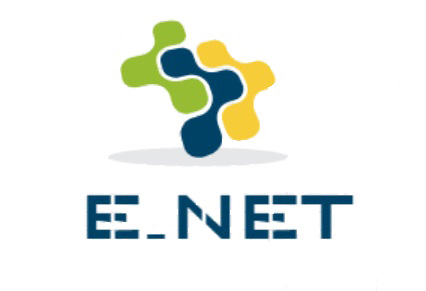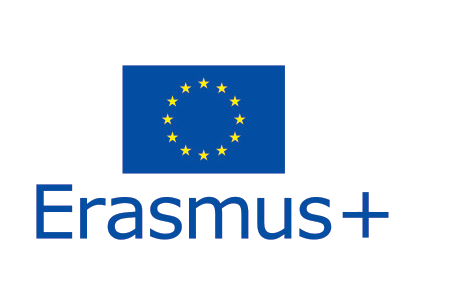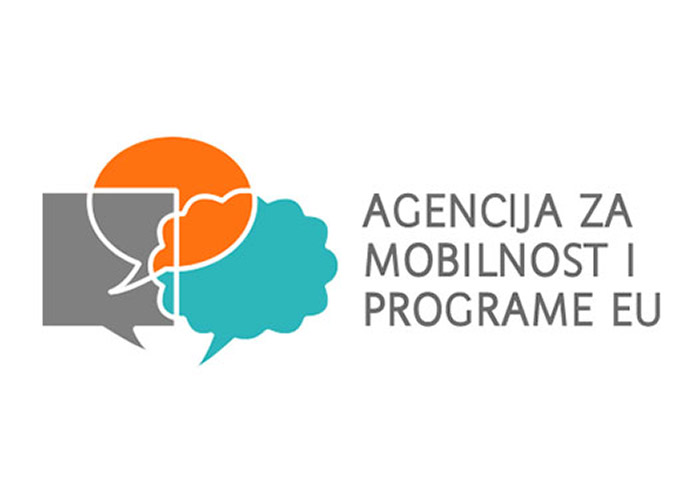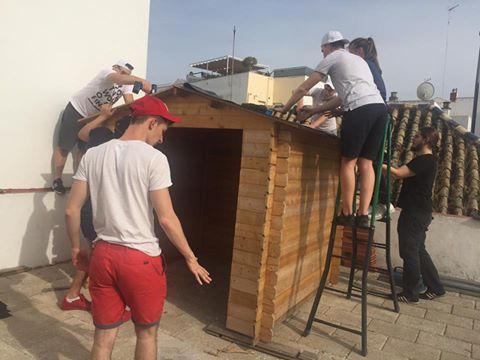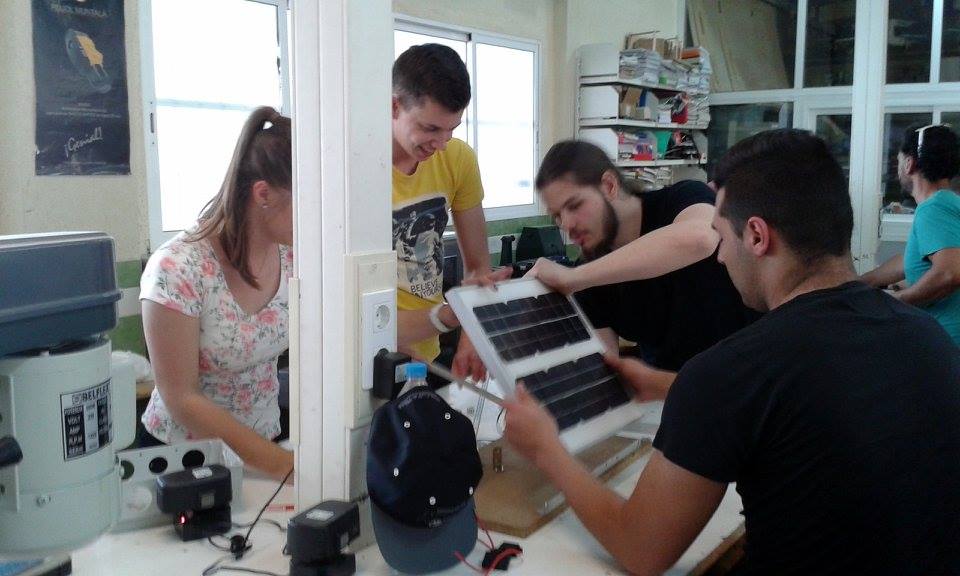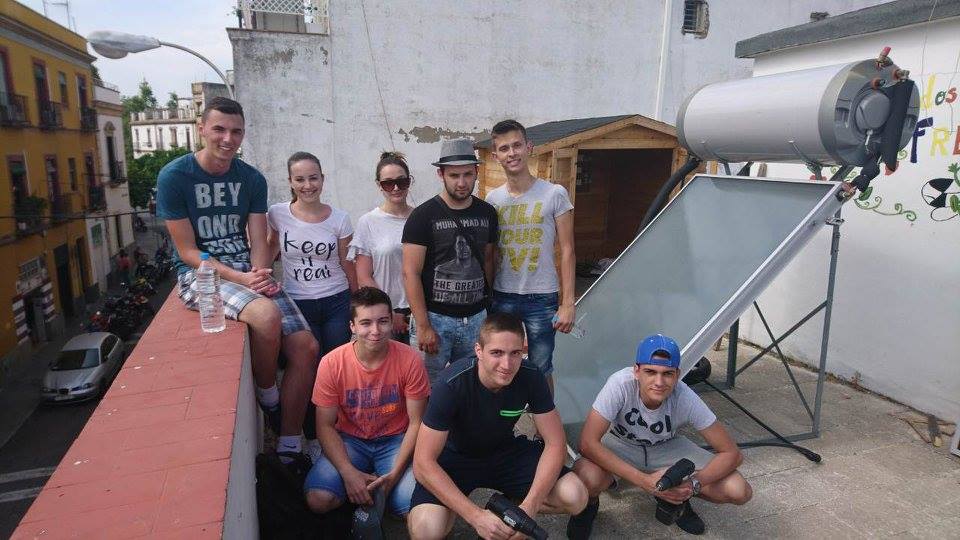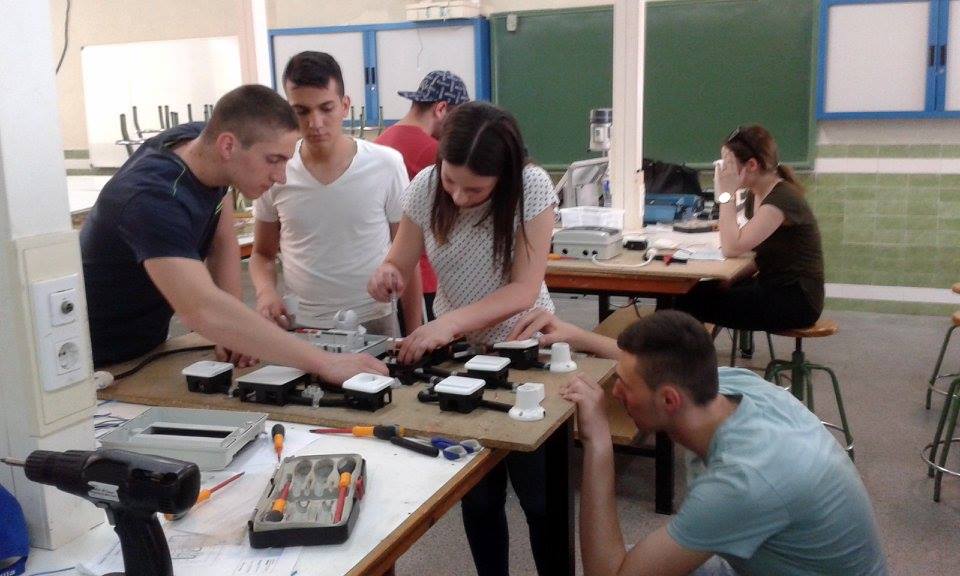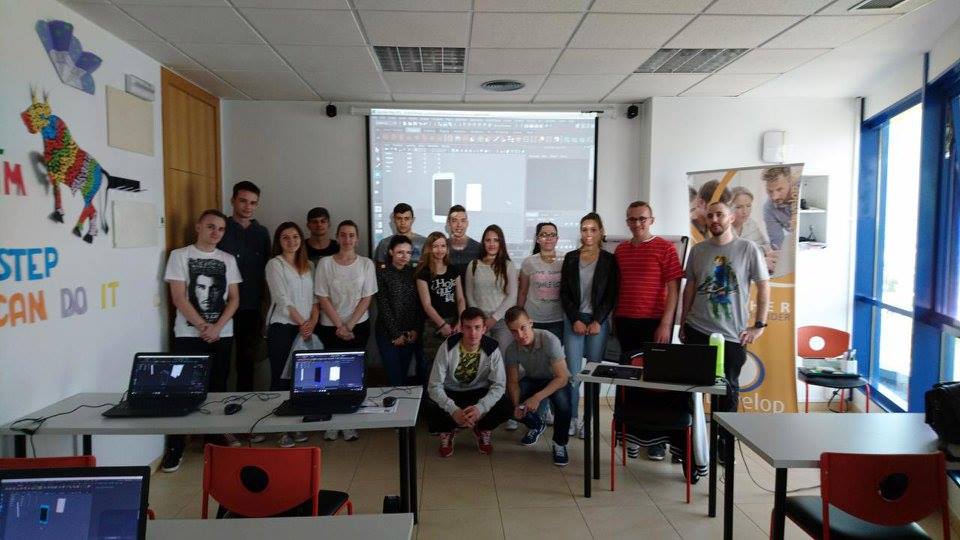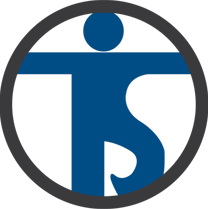PROJECT NAME: Education for New Energy Technologies
PROJECT ACRONYM: E_NET
PROJECT NUMBER: 2016-1-HR01-KA102-021691
PROGRAMME: Erasmus+
KEY ACTION: Learning Mobility of Individuals
ACTION: Mobility of learners and staff
ACTION TYPE: VET learner and staff mobility
APPLICANT ORGANISATION: Technical School Slavonski Brod (Croatia)
PARTNER ORGANISATION: Euromind Projects (Spain)
PROJECT SUMMARY:
The E-NET project includes student mobility from Technical school Slavonski Brod for professional practice in vocational schools SAFA and ConmasFuturo and company The Game Kitchen in Spain. Investing in knowledge and experience of our students we want to get closer to the priorities of the Europe 2020 Strategy to overcome the crisis and create conditions for a more competitive economy with higher employment rate. The Technical school is equipped with a weak technical capacity in selected areas of education. Due to lack of equipment practicum in which we perform practical classes and disharmony between education programs and the needs of the labor market, particular in the field of computer technology, there is all the more modest competencies of students because the school can not educate for practical work, and still has undeveloped model of professional training / apprenticeship in companies in the real sector.
Objectives:
- To encourage professional and personal development of participants and motivate students to continue their education
- To contribute an increase of employment of participants, acquisition and recognition of competences
- To increase the linguistic competence
- To contribute an intercultural and international in nature
- To connect the school with foreign partners for future technical cooperation
Mobility in Spain (Seville) in the school year 2016/17 we plan to send three groups:
GROUP 1: OIE programme – Self-sufficient Solar House: 8 students in the 4th grade – electrical engineer and 8 students in the 4th grade – architectural technician
GROUP 2: ROBOTICS programme – Development and Programming Drones: 8 students 3rd grade – technician for mechatronics and 8 students 3rd grade – technician computing
GROUP 3: 3D Design video games programme – Creating video games – 8 students in the 4th grade – architectural technician + 6 students 3rd grade – architectural technician
Students will have support of 6 accompanying persons.
All three groups will take a trip to Cadiz and Cordoba and other cultural activities. All three programs provide students with specific outcomes in the areas of their interest, the basis upon which they can build the future of their career.
Partner company euroMind ensured the place of professional practice in the following organizations:
– SAFA Nuestra Señora de los Reyes
– ConmasFuturo
– The Game Kitchen
EuroMind will organize the reception and accommodation of participants, meals of participants, day tickets and trips and cultural activities. They will work with the mentors for work placement to supervise students in order to ensure successful implementation of the mobility program.
Mobility will be carried out during the period from February 2017 to April 2017.
The learning outcomes according to the groups:
Group 1: After finishing the practice, students will be able to analyze the advantages and disadvantages of renewable energy technologies, calculate the power, productivity and other important size-related technologies – renewable energy sources, to be able to design, dimension and install photovoltaic systems, designed, dimensioned and install solar thermal systems, build isolated photovoltaic systems, build a network of photovoltaic systems, installed photovoltaic modules, solar collectors installed, connect the irrigation and solar pumps, solar cells connected in order to power electric cars, maintain solar installations.
Group 2: After finishing the practice, the students will learn about the different concepts of unmanned aerial vehicles, various applications of unmanned aircraft – profesinonalne and commercial (surveillance, rescue, shooting …), to recognize the different elements and be able to choose the most appropriate components for the production of drones, select and install multirotora components, apply security measures to be taken during the assembly multirotora, handle tools (welding gun, multimeter, etc.), configurable electrical values (voltage, current, resistance, power …), make drones, software configurable drones in Arduino program, perform stabilization aircraft for simple and optimal flight, know how to choose and combine the optimal transmitters (peaches, roll, turn, throttle and auxiliary control), to be able to able to connect the transmitter and receiver and configure the different movements of the transmitter with the axles of the aircraft, as well as configuration simulator.
Group 3: After finishing the practice, the students will get to properly direct his career as a creator of video games, and will receive a wide range of knowledge in 2D and 3D art skills and techniques This training is based on training, which is the starting point for people who see the development of his career in art creation of video games. The methodology is focused on teaching the art used in the video game industry today. The trainee will learn how video game studio work and the role of creators within the team.
